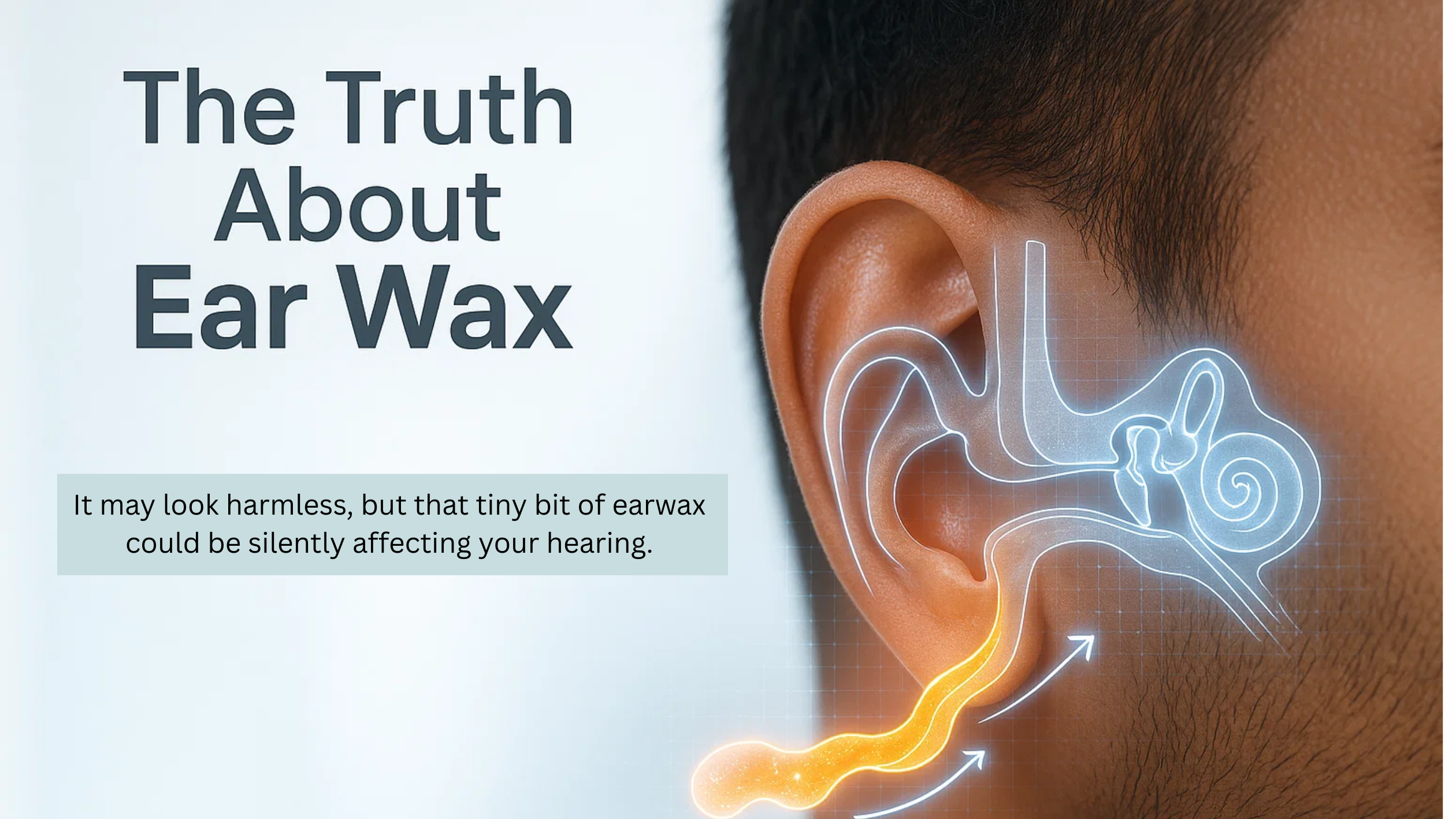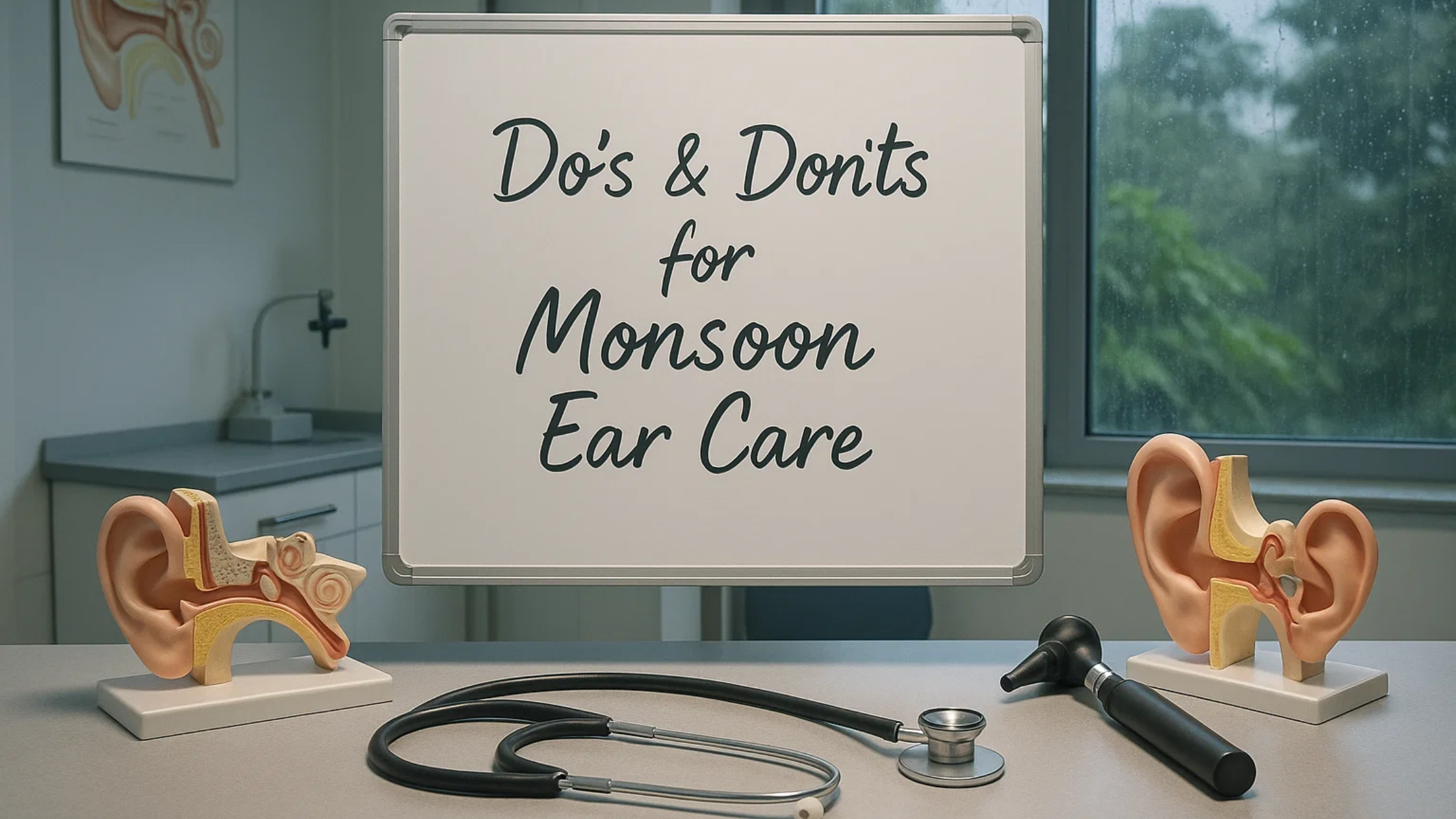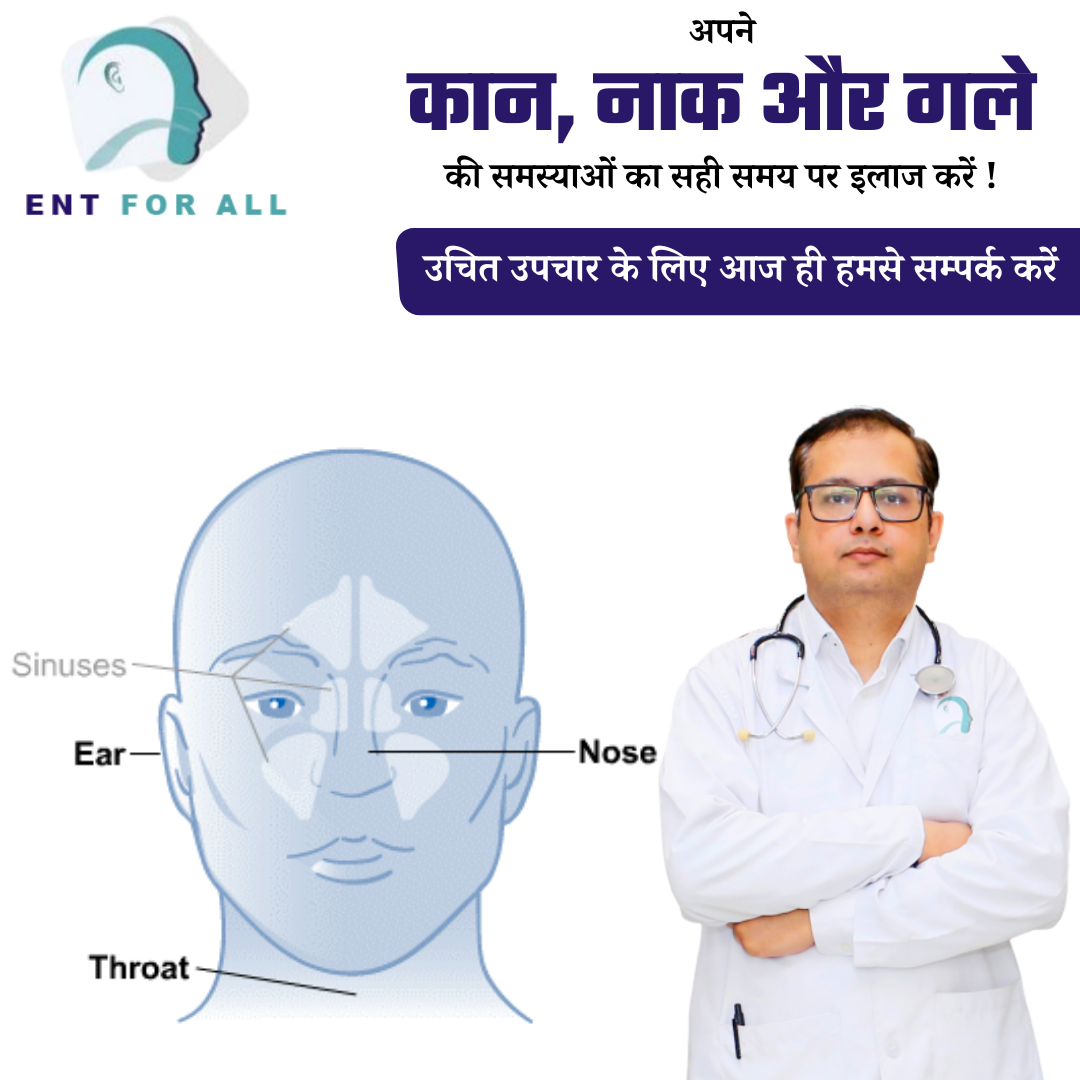When we think of humidity, we often associate it with frizzy hair, sweaty skin, or general discomfort. But one of the less-discussed impacts of humidity is on something we rarely notice until it causes trouble — our ears.
Your ears are delicate sensory organs that thrive in a balanced environment. High humidity levels — whether due to seasonal changes, monsoon weather, or tropical climates — can disrupt this balance, leading to various ear-related issues. In this post, we’ll explain how humidity impacts ear health, what symptoms to watch for, and what you can do to keep your ears healthy all year round.
1. How Humidity Affects the Ear
High humidity means there’s more moisture in the air, and unfortunately, your ears are not immune to the effects of dampness.
🔹 Encourages Bacterial and Fungal Growth
Excess moisture in the ear canal creates an ideal environment for bacteria and fungi to thrive. This can lead to infections, especially if the ears are frequently exposed to water (as with swimmers) and not dried properly.
🔹 Risk of Otomycosis (Fungal Ear Infection)
Otomycosis is a common fungal ear infection that occurs in warm, humid climates. It can cause itching, discomfort, discharge, and even temporary hearing loss.
🔹 Pressure Imbalance and Fullness
Humidity can affect the Eustachian tube, which helps regulate air pressure in the middle ear. When this tube is blocked or swollen due to moisture, it can cause a sensation of fullness or plugged ears.
🔹 Balance Problems
The inner ear plays a major role in balance. Disruptions in pressure or infections due to humidity may lead to dizziness or vertigo, especially in those already prone to balance disorders.
🔹 Softened Earwax and Blockages
Increased moisture can soften earwax, causing it to shift and potentially block the ear canal. This can result in muffled hearing or discomfort.
2. Common Symptoms to Watch For
Humidity-related ear issues often present with noticeable and uncomfortable symptoms. Some of the most common include:
- 🔄 Persistent itching or irritation in or around the ear canal
- ⚖️ Fullness or pressure in the ears
- 🔇 Temporary hearing loss or muffled sounds
- 💧 Foul-smelling or unusual discharge from the ear
- 🌀 Dizziness or imbalance, particularly when standing or walking
If you notice any of these symptoms, especially if they persist or worsen, it’s important to consult an ENT specialist.
3. Who Is Most at Risk?
Certain individuals are more likely to experience ear problems during humid conditions:
🏊 Swimmers
Known for “swimmer’s ear,” those who spend a lot of time in water often face moisture buildup, increasing the risk of infections.
🔁 People with Chronic Ear Infections
Anyone with a history of recurrent ear problems is more sensitive to environmental changes like humidity.
🎧 Frequent Users of Earphones or Hearing Aids
These devices trap moisture in the ear canal and may reduce air circulation, creating a breeding ground for bacteria and fungi.
4. Tips to Protect Your Ears During Humid Weather
Maintaining good ear hygiene is key, especially when humidity levels rise. Here are some practical steps:
- 🧴 Dry your ears gently after bathing or swimming. Use a clean towel and avoid aggressive wiping.
- 🚫 Avoid inserting objects like cotton swabs or earbuds, which can damage the ear canal or push wax deeper.
- 💧 Drain water naturally by tilting your head and gently pulling your earlobe to release trapped water.
- 🧼 Clean earphones or hearing aids regularly and store them in a dry place.
- 🌬️ Allow your ears to breathe by not wearing ear-covering accessories for extended periods.
5. Treatment Options
If you suspect an ear issue due to humidity, don’t self-diagnose or self-medicate. Here’s what you should do instead:
👩⚕️ Visit an ENT Specialist
An ENT can examine your ears using specialized tools and provide a clear diagnosis—whether it’s a fungal infection, wax blockage, or something else.
💊 Use Prescribed Medications
Treatment may involve antifungal or antibacterial ear drops, depending on the type of infection. It’s crucial to complete the full course as prescribed.
🩺 Follow Professional Ear Care Advice
Avoid using over-the-counter ear drops unless recommended. Misuse can worsen symptoms or delay recovery.
Conclusion
Humidity is more than a discomfort—it’s a silent contributor to various ear health problems. From infections to pressure imbalance and hearing issues, the effects can be frustrating but are largely preventable with the right care.
✅ Key Takeaways:
- Stay alert to symptoms like itching, fullness, and discharge
- Maintain good ear hygiene, especially during humid seasons
- Don’t delay consulting a qualified ENT specialist if discomfort persists
Your ears are sensitive, and taking care of them is essential—rain or shine, humid or dry.
Need expert ear care advice or treatment in Udaipur?
📞 Book your consultation with Dr. Sushant Joshi at ENT for All today.
Whether you’re dealing with persistent itching, discharge, hearing issues, or frequent infections due to weather changes, getting timely help from a qualified specialist in Udaipur makes all the difference.
Dr. Sushant Joshi, based in Udaipur, brings years of experience in diagnosing and treating all kinds of ear conditions, including those triggered by high humidity. With advanced tools and a patient-friendly approach, he ensures you receive the best possible care tailored to your needs.
















